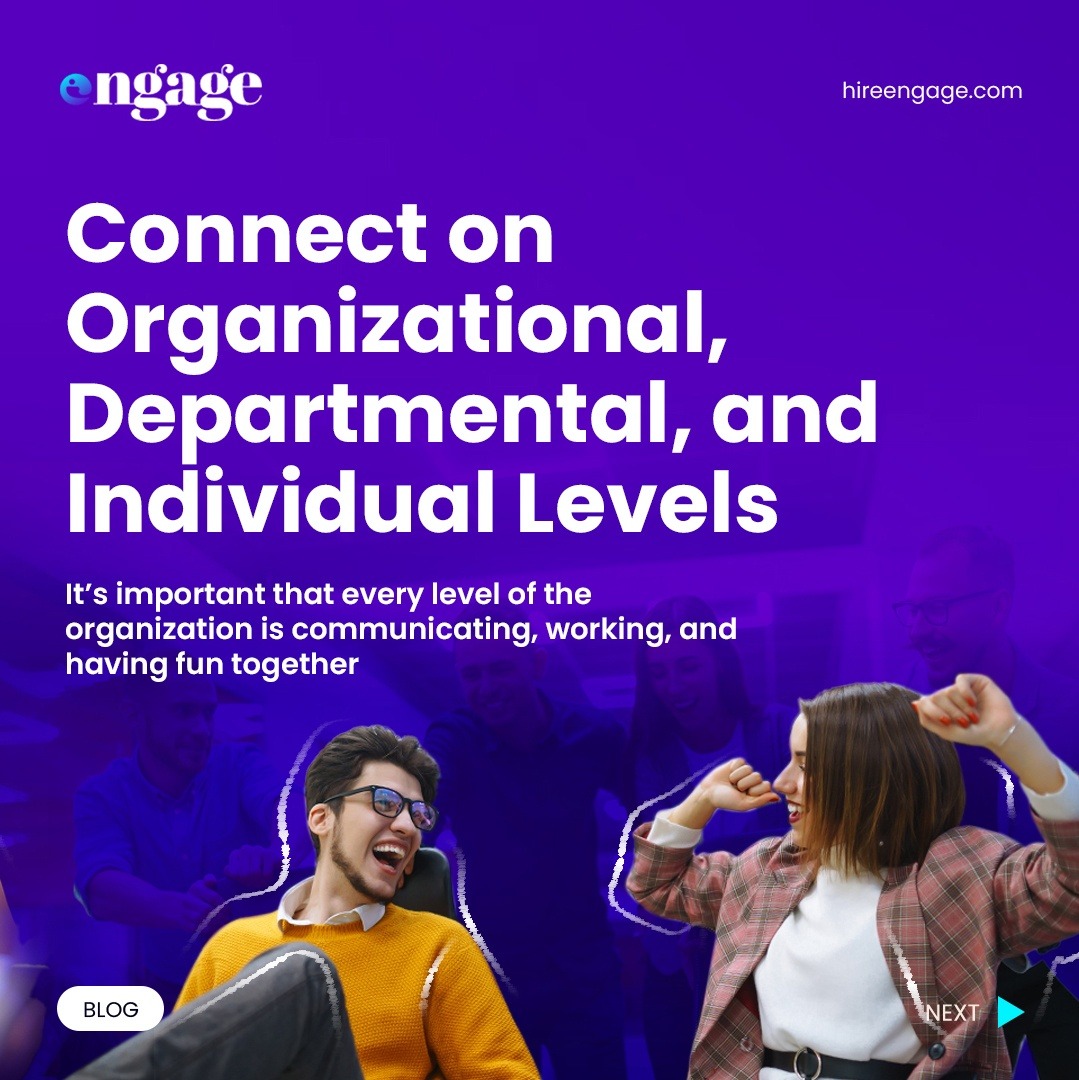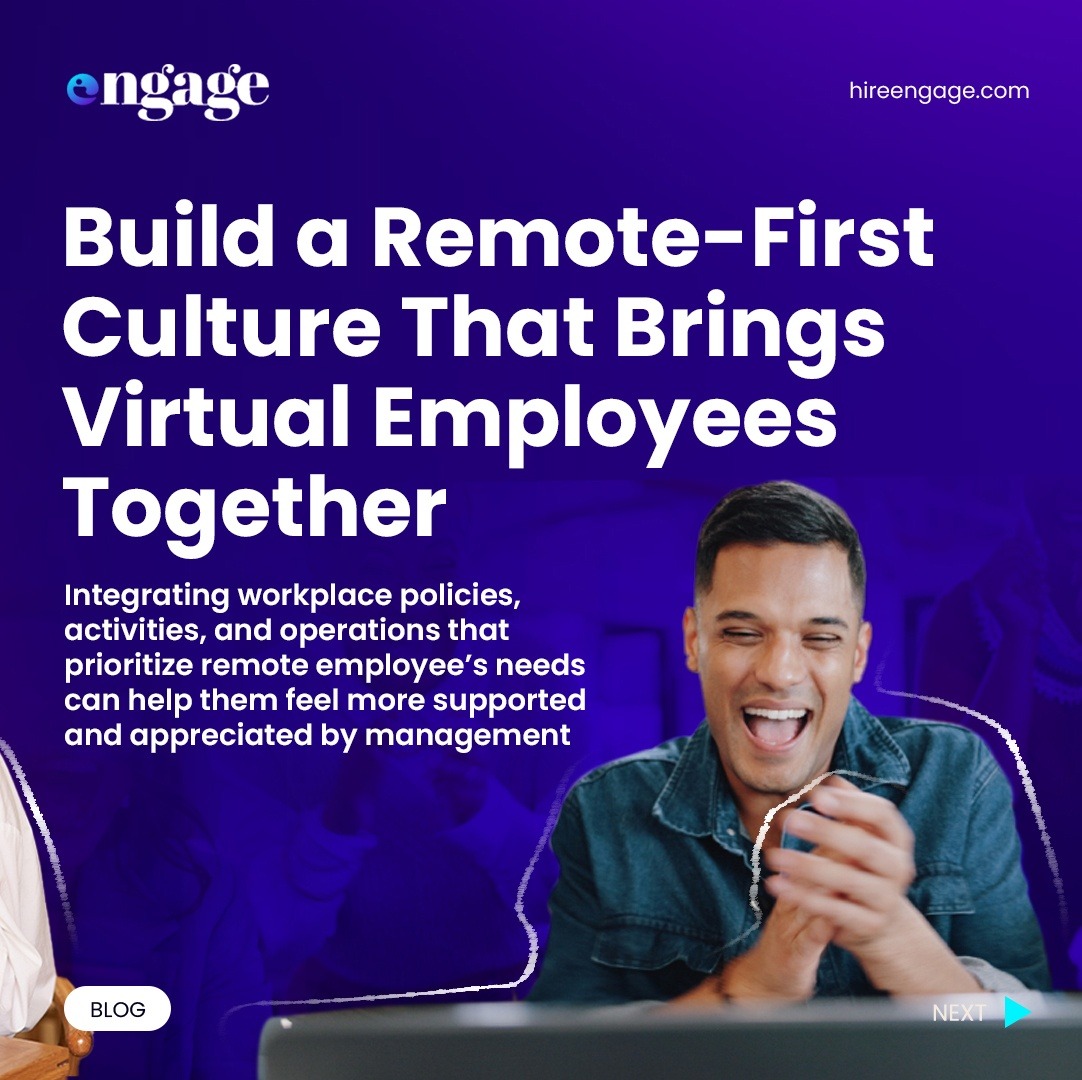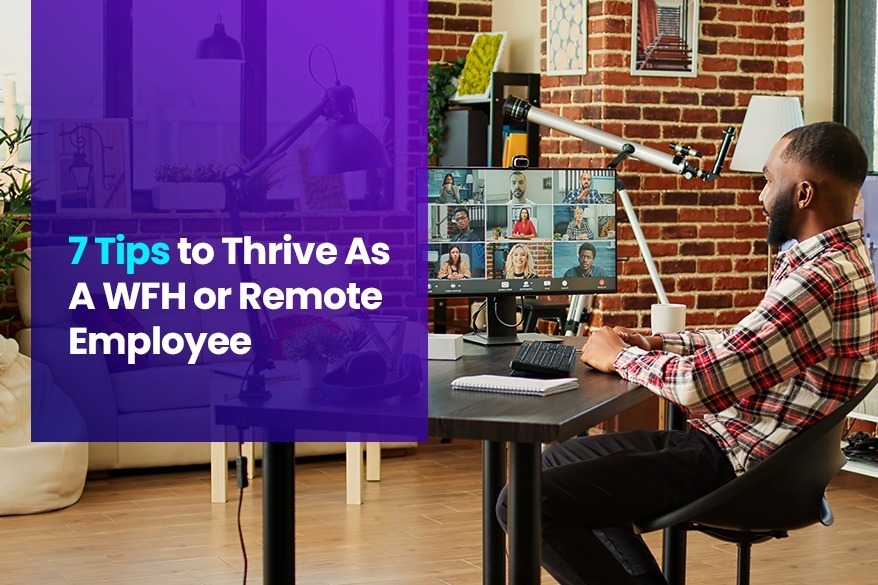Becoming a successful remote organization comes down to two company-wide core values: inclusivity and connection. Fostering a remote working environment that’s harmonious and productive hinges on a culture of camaraderie and a sense of belongingness within the company.
Encouraging inclusivity and building connections between the company and its people, between the leadership team and the team members, and within each individual is much easier said than done, especially in a remote setting.
Having the initiative to get people together and working closely is a powerful step in cementing these core values into the company culture and inspiring remote employees to fully adopt and celebrate deeper professional relationships.

Having a culture of inclusivity and connection inspires loyalty, productivity, and happiness in remote employees.
Remote work has been a welcome change for most people tired of the daily office grind. The increased work-life balance and control over their own time has attracted many high-quality professionals to the non-traditional work set-up. However, the same distance from the office and coworkers has also increased feelings of isolation and detachment in employees.
When employees feel isolated and disconnected from their team and the organization itself, they can start to mentally check-out, start missing more work days, and their work performance can even suffer.
A study has even shown that “70% of remote workers can feel ‘left out’ of the workplace” due to low socialization efforts.
The increased independence prevalent in remote work can easily create worker silos wherein employees can feel alone, unsupported, and forgotten by the rest of the team. Having workplace traditions and activities that promote teamwork and fun bonding with colleagues can have a huge impact against remote isolation.
Industry research has proven that battling remote isolation starts from building a culture of inclusivity and connection. Making employees feel part of the group, valued for their contributions, and appreciated for their talents and personality goes a long way in strengthening company loyalty and increasing individual happiness.
Work performance also gets a big boost from employees feeling connected and bonded with their team. In fact, one study reported a “20% increase in performance” from remote employees from just 15 minutes of socializing and chatting with their coworkers.

Turnover rates are also positively affected by strong workplace connections. Employees that feel excluded and isolated from colleagues are “24% more likely to quit their jobs” compared to those that have formed strong friendships and professional relationships within the company.
Knowing just how big of a factor inclusion and social connection are to remote work, management and the human resources department must proactively cultivate and foster these core values from the ground up to ensure long-term happiness and success in the company.
Build a remote-first culture that brings virtual employees together.
Company culture play an even bigger role in ensuring there’s widespread inclusivity and social connection in a remote work environment. Integrating workplace policies, activities, and operations that prioritize remote employee’s needs can help them feel more supported and appreciated by management.
1. Provide long-term career opportunities for remote employees
Unfortunately for the remote industry, many professionals still look at remote work as short-term employment. The lack of long-term career opportunities can often make employees feel replaceable and outside the “core” team members.
By communicating the career progressions available to remote employees, managers can make them feel included in the long-term plans of the company and provide job security, even from a distance. Remote employees that feel taken care of in terms of job longevity become more loyal and appreciative of their employers and colleagues.

2. Connect on organizational, departmental, and individual levels
Just because some remote employees have close friendships and working relationships with management and other departments doesn’t mean that all company employees feel the same way. Making sure that there is interconnection in all levels of the organization hierarchy ensures that not only do employees feel included, but also to let them feel heard and seen.
Leaders and managers often need to spend time connecting with their team members through 1-on-1s and departmental meetings, along with company town halls. It’s important that every level of the organization is communicating, working, and having fun together.

3. Build connections based on interests outside of work
Fostering work friendships through work problems and challenges can also get tiresome. Bonding with coworkers through shared interests unrelated to work can strengthen the authenticity of the professional relationship.
Having little ice breakers during meetings where people can share what they did over the weekend or updates on their hobbies helps remote employees feel valued beyond their productivity and skills. It also helps connect people who would otherwise never have spoken due to differing job roles.

Fostering a work culture of inclusivity and connection takes a lot of effort from management and HR. These core values need to be integrated in every aspect of the organization, from onboarding new employees to promoting long-time valued workers.
Building genuine connections not only improves employee happiness but it also contributes to the long-term success, sustainability, and strength of a company as a whole.
Find more ways to hire, inspire, and train remote employees with Engage! Our highly qualified recruitment managers and remote work experts can help your company scale while you focus on the core business operations. Learn more about our recruitment and managed services and how we can help grow your organization.



